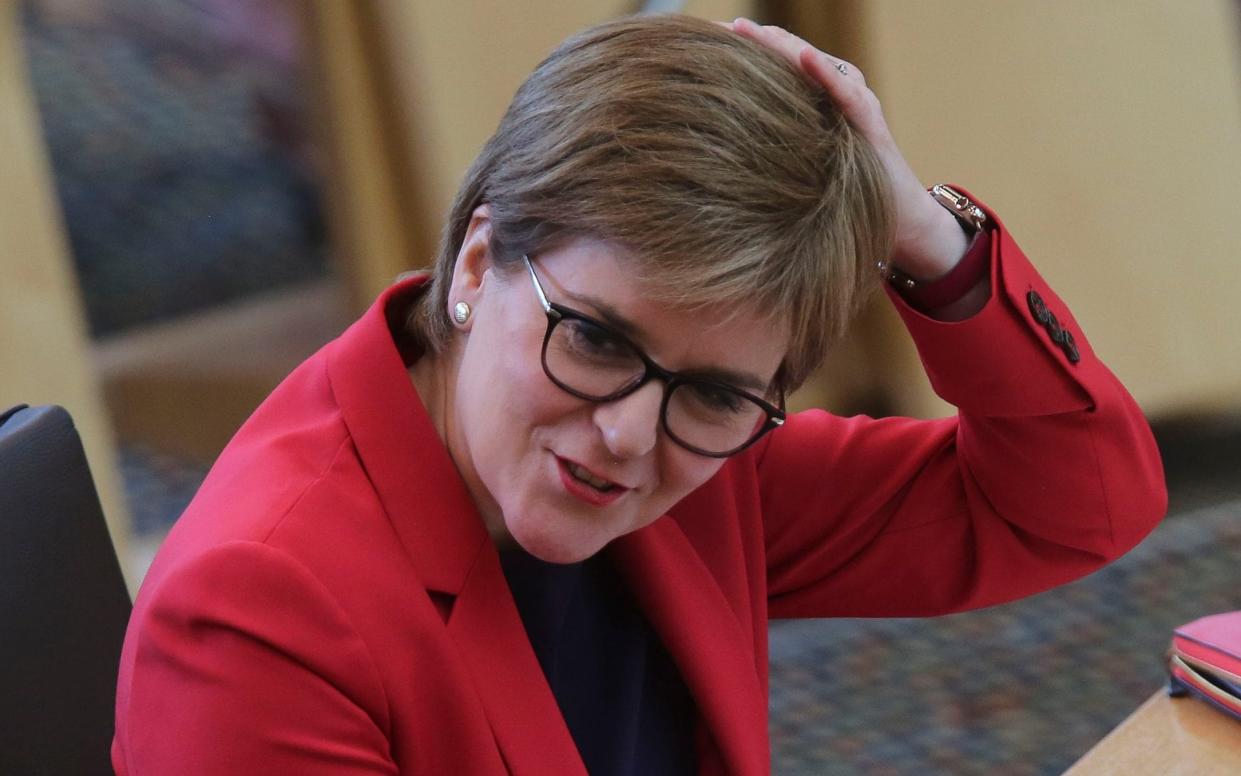A tax on wealth, decriminalised drugs and immigration unbound: SNP’s wish list for independent Scotland

An independent Scotland would examine decriminalising personal drug use, encouraging immigration and imposing a wealth tax on an1yone with assets worth more than £500,000, an SNP blueprint has said.
The Nationalists’ social justice and fairness commission said a one-off tax, possibly imposed at one per cent on holdings of wealth over £500,000, could be used to help close a separate Scotland’s huge deficit following the pandemic.
However, the report acknowledged there may be “behavioural responses” by wealthy people moving their assets elsewhere and “practical difficulties” in the state creating an “inventory of all wealth” – such as cars and jewellery – “and revaluing it annually”.
It also proposed increasing taxes on higher earners, replacing council tax with a levy based on land value and exploring a universal basic income – the state providing a minimum income for everyone without means testing.
The group was commissioned by Nicola Sturgeon in 2019 and its report said it wanted to offer a “blueprint to future governments” on key policy areas if Scotland was to separate from the UK.
Neil Gray, an SNP MSP and the commission’s deputy convener, said the report provided a “route map to a more socially just Scotland” with “policy decisions that can help us build a fairer and happier society.”
But the Scottish Tories said the document was an uncosted wish-list “based on fantasy economics” that failed to take into account “the reality that independence would already cost Scottish families thousands of pounds”.
They also pointed out the blueprint contained a plethora of policies the SNP government already had the power to implement, but had failed to do so during its 14 years in office. The Nationalists originally promised to scrap council tax in their 2007 manifesto.
The respected Institute for Fiscal Studies warned during the recent Holyrood election campaign that Scotland’s budget deficit – already the highest in Europe before the pandemic – could have reached 25 per cent of GDP.
With Scotland’s higher public spending currently funded by the block grant from the UK Treasury, calculated using the Barnett formula, the economic think tank said stringent austerity would be required.
However, the SNP report said that other economists “agree that budget deficits built up in response to Covid-19 are manageable and we should not rush towards an ill-fated drive to reduce them.”
Mr Gray said: “One of the obvious and important lessons learned by producing this report during the period of the coronavirus crisis is that huge changes can be achieved if the political will exists to be bold, dynamic and innovative.”
Miles Briggs, the Tories’ shadow social justice secretary, said: “This wish list from the SNP is not remotely credible. Their election manifesto wasn’t costed and this blueprint for their vision of a future Scotland isn’t either.”
To tackle Scotland’s record drugs death toll, the commission called for a citizens’ assembly to study the potential for the decriminalisation of drugs for personal use and backed trialling safe consumption rooms “with a view to expansion if it proves effective”.
The report also backed a much more relaxed immigration regime, allowing free movement from the Continent, foreigners to get visas if they promised to live in areas at risk of depopulation, and asylum seekers to work.
It said a separate Scotland must shift the burden of taxation away from income and spending and on to wealth. For example, it said a land value tax would “enable the community to recoup” from homeowners some of the increase in house prices resulting from improvements to nearby public infrastructure.

